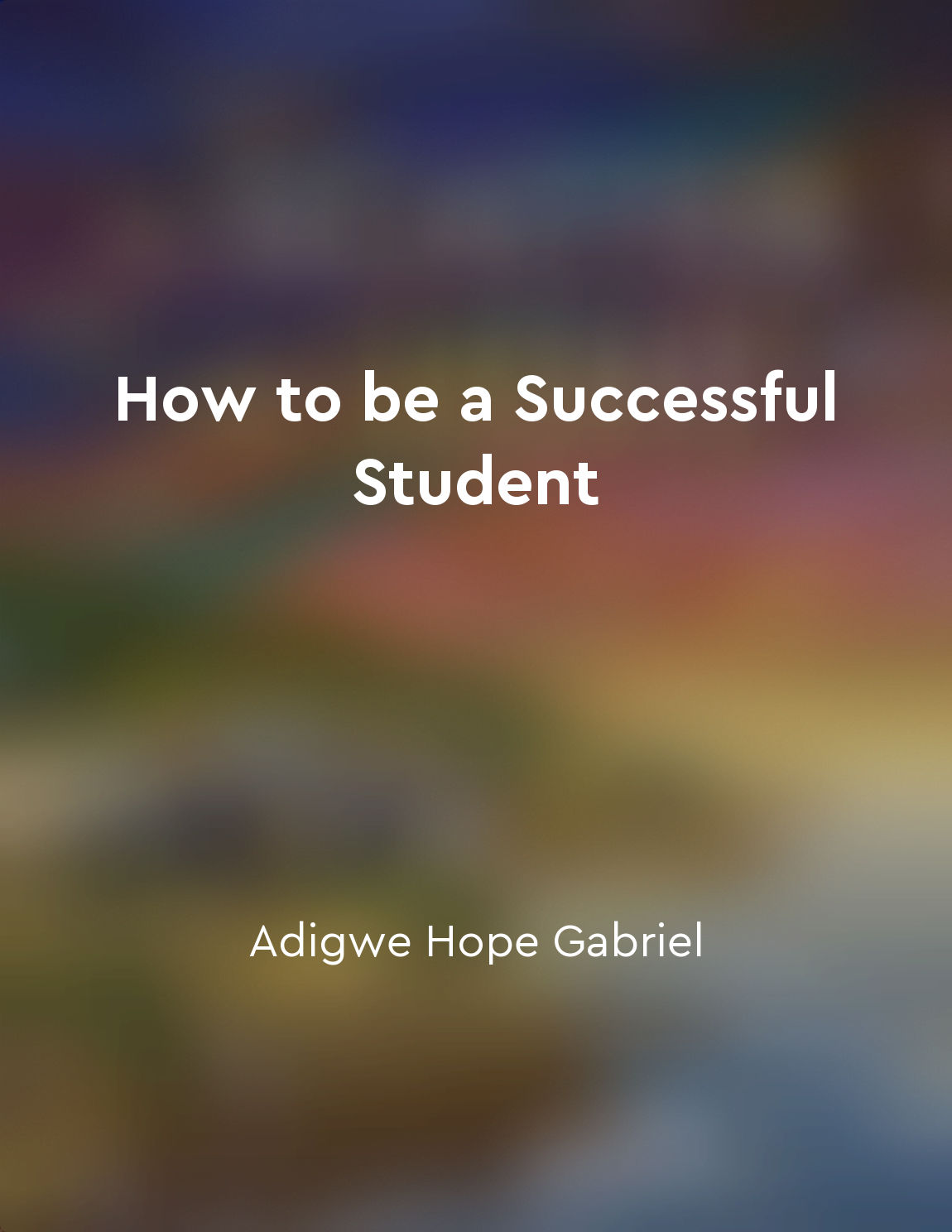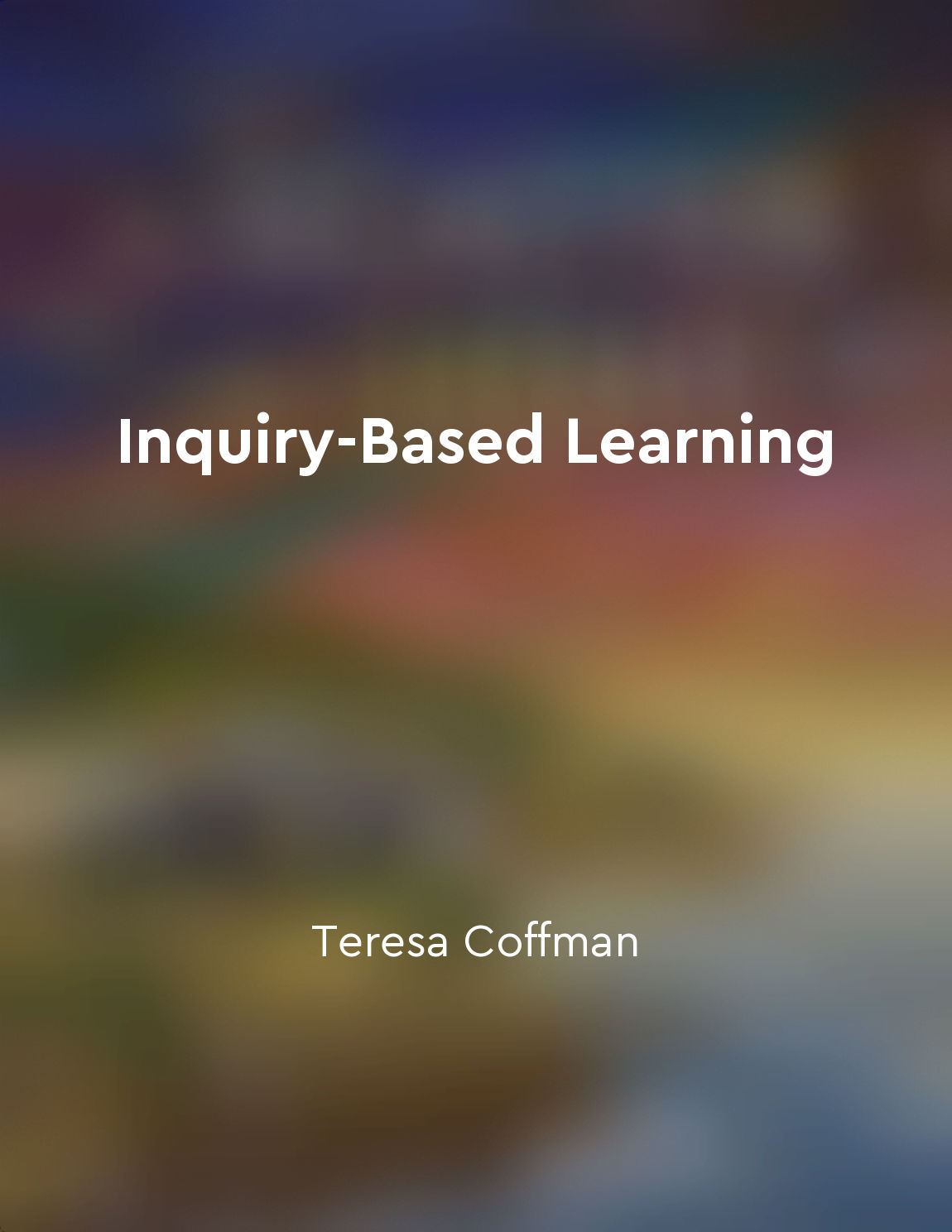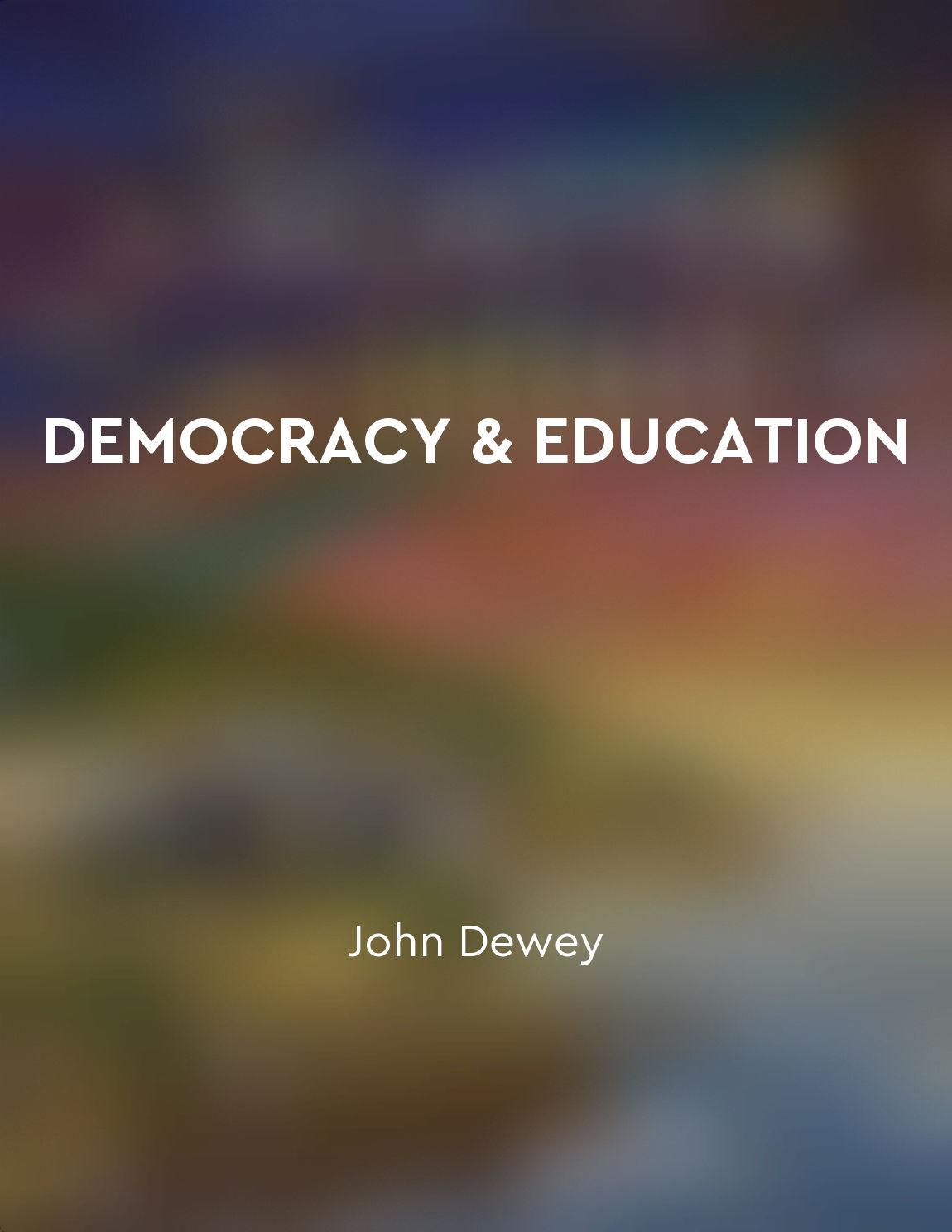Schools should empower students to think independently from "summary" of DEMOCRACY & EDUCATION by John Dewey
In the educational process, one of the primary goals should be to cultivate the ability of students to think independently. By fostering independent thinking, schools can equip students with the skills necessary to navigate the complexities of the world around them. Independent thinking is not merely the ability to regurgitate information or follow instructions, but rather the capacity to analyze, evaluate, and synthesize information in a critical manner. When students are encouraged to think independently, they are better prepared to engage with a diverse range of perspectives and ideas. This not only enhances their cognitive abilities but also fosters a sense of intellectual curiosity and open-mindedness. Independent thinking enables students to challenge assumptions, ask probing questions, and seek out alternative viewpoints, thereby promoting a deeper understanding of the subject matter at hand. Moreover, by empowering students to think independently, schools are nurturing the development of responsible and active citizens. In a democratic society, it is crucial that individuals are able to think for themselves and make informed decisions based on evidence and reason. Independent thinking promotes autonomy and self-reliance, qualities that are essential for democratic participation and civic engagement. In order to cultivate independent thinking, schools must provide students with opportunities to engage in meaningful and authentic learning experiences. This may involve encouraging students to explore topics of interest, engage in collaborative problem-solving, and reflect on their own thinking processes. By creating a supportive environment that values intellectual inquiry and independent thought, schools can empower students to become lifelong learners and critical thinkers.- The promotion of independent thinking in schools is essential for the intellectual, social, and moral development of students. By fostering independent thinking, schools are not only preparing students for academic success but also equipping them with the tools necessary to navigate an increasingly complex and interconnected world. Through the cultivation of independent thinking, schools can help students become active agents in their own learning and in society as a whole.
Similar Posts

Social Security is financially unsustainable
The current system of Social Security, as it stands today, is on an unsustainable path. The reason for this is simple: the numb...

Finding a study method that works for you is key
To excel in your academic pursuits, it is essential to discover a study method that suits your unique learning style. This is a...
Confronting uncomfortable truths leads to growth
When we are confronted with uncomfortable truths, it can be challenging. It can make us feel uneasy, upset, or even defensive. ...
Setting clear expectations and goals for student achievement
Setting clear expectations and goals for student achievement is a critical aspect of effective teaching. When instructors clear...
Preservation of historic buildings can enhance community character
Preservation of historic buildings is not merely an exercise in nostalgia or sentimentality. It is a strategic investment in th...

Inquirybased learning encourages creativity
Inquiry-based learning is a pedagogical approach that emphasizes the process of questioning, exploring, and investigating to co...
Children should be allowed to make their own decisions
When we allow children to make their own decisions, we are granting them the freedom to explore and learn in a way that is most...
Tailored for Class 7 students
This question bank is specifically designed for students of Class 7, keeping in mind their learning needs and capabilities. The...


